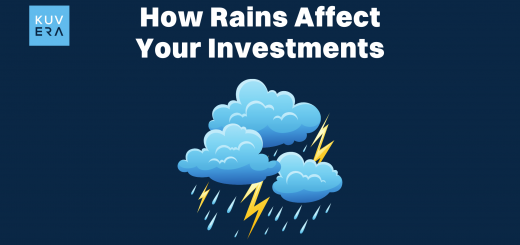“Scam 1992” wasn’t just a catchy title for a web series. It was a defining moment in India’s financial history. At the center of it all was Harshad Mehta, a stockbroker who rose to fame in the early 1990s and brought the entire financial system to its knees with his innovative yet fraudulent stock market practices.
Let’s talk about Harshad Mehta and its long-lasting impact on the Indian stock market.
Early Life and Background

Harshad Mehta was born on 29th July 1954, into a Gujarati family in Mumbai. He spent his early childhood in Raipur, Chhattisgarh. Later, he moved to Mumbai for higher education. He graduated from Lala Lajpatrai College, where he first began taking an interest in financial markets.
Before he entered into the stock market, Harshad did many odd jobs, including selling cement and working as a sales agent. It was only in the late 1970s that he got his first taste of stock trading. He joined the Bombay Stock Exchange (BSE) as a jobber (a middleman between brokers). He soon climbed the ladder, gaining expertise and recognition for his unique trading strategies.
His Journey as an Entrepreneur
Mehta founded GrowMore Research and Asset Management, a stock broking firm in 1986. With his firm, he quickly gained a reputation for his ability to predict market trends and influence stock prices. This earned him the nickname “Big Bull”, as he was someone who could drive a bull run (an upward trend in stock prices) on the stock exchange.
Net Worth and Investments
At the peak of his stock broking, his net worth was estimated to be over ₹1,000 crores (equivalent to billions in today’s terms). His investments focused on blue-chip companies like ACC, Videocon and many others.
Start investing in Index Funds.
Scam 1992: The Modus Operandi
Harshad Mehta used an important financial instrument known as the Ready Forward (RF) deal– a type of short-term loan transaction between banks. By exploiting loopholes in the banking system, he created fictitious bank receipts (BRs) to obtain large sums of money, which he then invested in the stock market.
Between April 1991 and May 1992, Harshad was able to manipulate the prices of stocks like ACC, Apollo Tyres and Sterlite Industries. Then, he artificially inflated their values to earn huge profits. At one point, the price of ACC’s stock rose from ₹200 to ₹9,000 within a short period, showing the extent of manipulation.

Journalist Sucheta Dalal uncovered the scam in 1992, which led to an immediate crash in the stock market. The amount involved in the scam was estimated to be around ₹5,000 crores– a figure that shook the confidence of investors and broke the stock market.
Here are a few companies whose share prices skyrocketed during the 1992 scam:
| Key Companies Involved | Stock Price Before The Scam | Peak Price During Scam |
|---|---|---|
| ACC Ltd. | ₹200 | ₹9,000 |
| Videocon Ltd. | ₹45 | ₹2,000 |
| Sterlite Industries Ltd. | ₹30 | ₹1,500 |
After the scam was exposed, Harshad Mehta was arrested by the Central Bureau of Investigation (CBI) in 1992. He faced 72 criminal charges and over 600 civil suits. He was also banned from trading in the stock market.
Despite spending many years fighting legal battles, Harshad Mehta could not escape the consequences of his actions. He spent time in prison and was ultimately convicted in four criminal cases. He died on 31st December 2001, in Tihar Jail due to a heart attack.
A New Era for the Stock Market
The Harshad Mehta scam led to a complete change in the Indian stock market and banking regulations. The Securities and Exchange Board of India (SEBI) introduced stricter regulations to ensure transparency in stock trading. Banks also reshaped their operations, leading to tighter controls over financial transactions and inter-bank lending.
The reforms brought about by the scam made the market more transparent and investor-friendly. So, that people look for long-term growth and stability and not just short-term gains.
Wrapping Up
Harshad Mehta’s story is a tale about the consequences of unregulated ambition and greed. His actions not only defrauded the banking system but also led to one of the biggest financial crises in Indian history. Yet, his legacy remains since his actions brought huge changes in the Indian stock market.
While his vision was flawed, the changes brought about in response to his actions have made our financial system is more safer and transparent for future generations.
FAQs
What is the Scam 1992?
Scam 1992 is a legendary financial scam by Harshad Mehta, which involved manipulating the Indian stock market using fraudulent bank receipts.
Who was Harshad Mehta?
Harshad Mehta was a stockbroker and is known for orchestrating the 1992 securities scam. He was nicknamed the “Big Bull of Dalal Street”.
How did Harshad Mehta manipulate the stock market?
Harshad used Ready Forward (RF) deals, involving fictitious bank receipts, to manipulate funds and invest in stocks. Thus, driving up their stock prices artificially.
What was the amount involved in the Harshad Mehta scam?
The scam involved around ₹5,000 crores, which was used to manipulate the stock prices of major companies.
How did Sucheta Dalal expose the scam?
Sucheta Dalal, a journalist with The Times of India, exposed the scam by revealing the fraudulent use of bank receipts to manipulate stock prices.
Interested in how we think about the markets?
Read more: Zen And The Art Of Investing
Watch here: Investing In Passive Funds
Start investing through a platform that brings goal planning and investing to your fingertips. Visit kuvera.in to discover Direct Plans of Mutual Funds and Fixed Deposits and start investing today.
AREVUK Advisory Services Pvt Ltd | SEBI Registration No. INA200005166
DISCLAIMER: Mutual Fund investments are subject to market risks. Read all scheme related documents carefully. Registration granted by SEBI, membership of BASL (in case of IAs) and certification from NISM in no way guarantee performance of the intermediary or provide any assurance of returns to investors. Investments in securities market are subject to market risks. Read all the related documents carefully before investing. The securities quoted are for illustration only and are not recommendatory.












